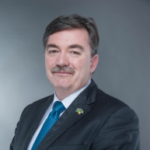The 2015 Paris Agreement on Climate Change fundamentally altered the nature of global climate governance by introducing a new framework based on a bottom-up system of nationally determined contributions (NDCs).
As a signatory Party to the Agreement, the Kingdom of Saudi Arabia communicated its intended nationally determined contribution (which became its first NDC) in November 2015. This included a goal of avoiding up to 130 million tonnes of carbon dioxide (CO2) equivalent emissions per annum by 2030.
This paper evaluates several supply-side policy approaches to mitigate CO2 emissions from the Saudi Arabian power and water sectors, which together account for more than 40% of the Kingdom’s greenhouse gas emissions. The paper aims to help inform the policymaking process in the Kingdom ahead of the communication of its second NDC in 2020.
In addition to a business as usual scenario, suggested policy approaches include:
- A Portfolio Standard that requires up to 50 gigawatts of solar, wind and nuclear technology deployment
- A Clean Energy Standard that simulates a set of notional policies that reduce the carbon intensity of electricity and water production
- A Partial Fuel Price Reform, where fuel prices are gradually raised to about half of international price levels by 2030
- A Full Fuel Price Reform where fuel prices are raised to international levels.
The paper evaluates these alternative scenarios in terms of their practical implications on Saudi Arabia’s CO2 emissions, electricity production, fuel consumption, investments and cost-effectiveness, as well as on the Kingdom’s oil exports and revenues.




